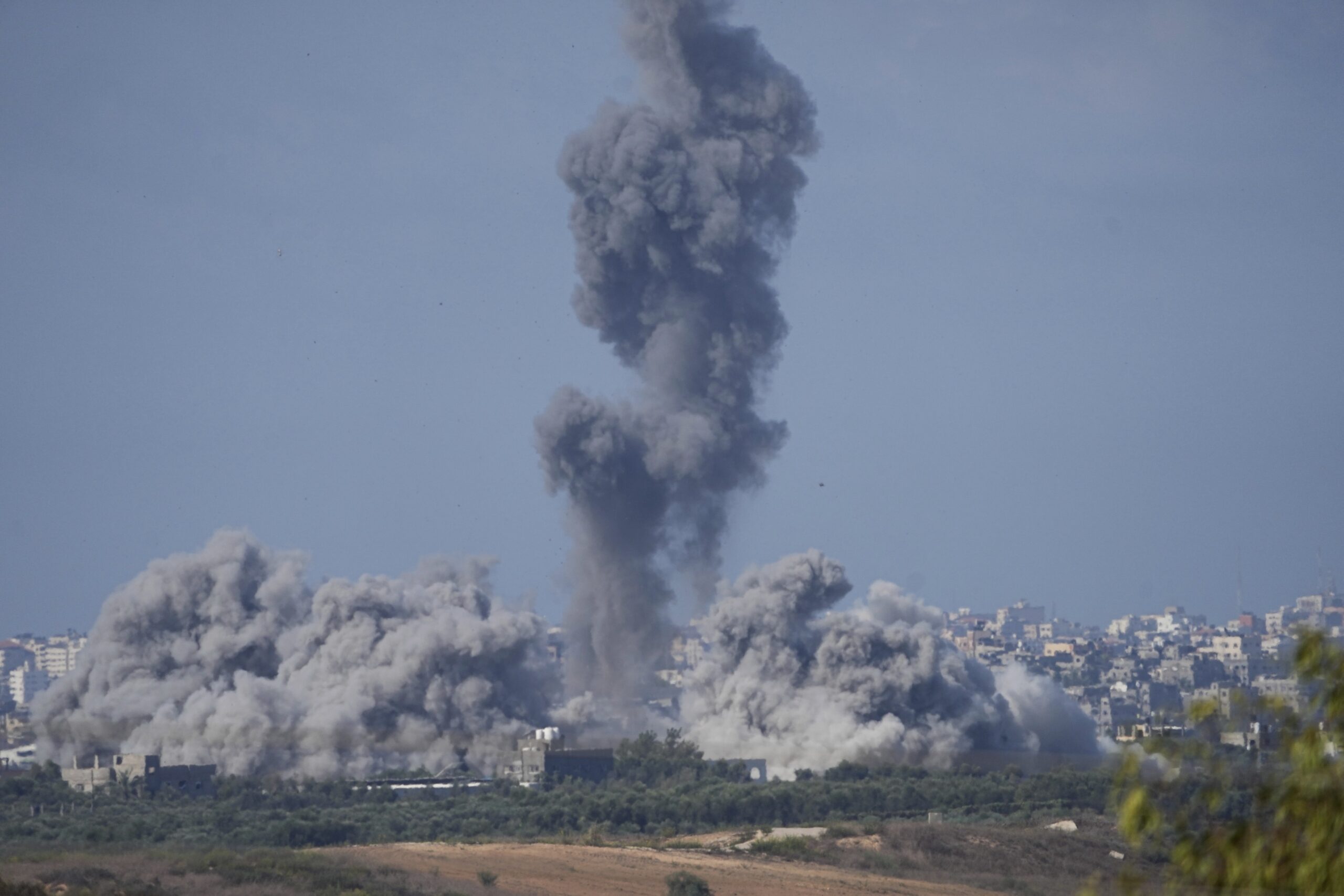


This week remained subtle from global affairs’ point of view while advances in Israel-Hamas conflict created a stir across the world. On the other hand, China reacted sharply on the historic judgement of Indian Supreme Court on abrogation of Article 370 from Jammu & Kashmir.
The world unites when it comes to the challenge of Terrorism. India keeps iterating that it needs to get a collective reply from the entire world. Terrorist organisations, claiming themselves as political organisations, only devastate lives (remember Afghanistan!). Keeping politics aside, the leaders need to think what will they achieve by helping terrorism (read: Hamas). Hamas is a declared terrorist group by Israel, the US, the EU and the UK, as well as other global powers. It is funded and supported by nations like Iran, and has executed several terrorist attacks on Israel using rockets and other sophisticated military equipment.
On 7 October, Hamas unprecedentedly attacked Israel with aerial strikes and its fighters who entered the societies of Israel near the Gaza Strip, killing hundreds of people, including women and children and taking dozens of hostages. Israel is responding to this brutal terror attack of Hamas, and even entered in to Gaza; but the innocent children, women and other civilians who were killed in this attack show another ugly face of terrorism.
UN urges Gaza ceasefire
Gaza is a key matter of concern in this whole crisis, considering the fact that it is strategically located amid Israel, Egypt and Mediterranean Sea; and carries the densest population in the world. It has suffered gravely in the present war between Israel and Hamas. Israel’s entry in to Gaza invited sharp reactions from the world including UN as many lives suffered heavily due to Israel’s attacks in Gaza. After a temporary ceasefire between Israel and Hamas, United Nations General Assembly (UNGA) came up with a resolution this week to direct Israel to declare immediate armistice so that humanity does not suffer in this conflict. (Somebody please ask UN about the lost lives of those Israelis who were attacked mercilessly by Hamas!)
India shifts, backs Gaza ceasefire
India on Tuesday voted in favour of the resolution at UNGA along with 153 nations. This is a clear-cut shift from India’s stance in late October when it abstained from a vote on a similar resolution. However, Indian officials made it clear that Indian government stands in favour of peace and resolution of the matter through non-violent means; while condemning the brutal terrorist attack on Israel by Hamas. Therefore, Israel could be irked on India’s decision to vote in favour of the ceasefire this time, it still appreciates India’s support. Though The US used its power to safeguard Israel’s interests considering only 10 countries including the US voted against the resolution, the resolution was passed by UNGA. The point to be noted is that this resolution is non-binding and symbolic in nature to show the opinion of the world to Israel.
China reacts to Article 370 changes
On the other hand, China has reacted sharply on the historic abrogation of Article 370 from Jammu & Kashmir. Ever since India’s independence, China has posed major challenges to India’s internal security. Knowing China’s expansionist agenda and ‘Five Fingers’ policy in the fifties, why the then Indian government misled the Indian public with the hollow slogan of ‘Hindi-Chini Bhai Bhai’, remains a significant question. Communist China never accepted Taiwan as a separate country and has been imposing its occupation on Taiwan under the ‘One China’ principle. In South Asia, it captured Tibet in 1950 and also kept its eyes on Nepal, Bhutan, Ladakh, Sikkim and Arunachal Pradesh. This is the ambitious ‘Five Fingers’ policy of China under which it sees Tibet as the palm and Nepal, Bhutan, Ladakh, Sikkim and Arunachal Pradesh as the five fingers, which it wants to occupy. Due to the strategic importance of India’s Northeastern region, China has been trying to occupy these areas for a long time. Now China has disapproved Indian Supreme Court’s decision on the abrogation of Article 370 along with creation of Ladakh as a Union Territory (UT). Chinese Foreign Ministry spokesperson has stated that China does not recognise the UT of Ladakh, created unilaterally by India. Calling it an ‘internal judicial decision’, she further stated it does not alter the status of the western section of the China-India border. China claims that it has always been part of its territory.
Though China is presently sailing through troubled waters due to acute economic crisis and already open conflict theatres in Indo-Pacific, it is not leaving its malicious intentions to occupy Indian territories.
India is no more at the backfoot in global politics. With positive global agenda of promoting global good, it is playing at the front foot, and other players are supporting it. China needs to learn the team game of complex interdependence otherwise it will be out of the game.